…by April Wilson Smith…
I used to hate the word “recovery.” To me, it was a mark of shame, stating that I was permanently damaged and different from “normies,” as they call people without substance use problems in AA. Recovery signified a lifetime of isolation, avoiding social events and going to dull nightly meetings where people wallowed in the past. It also implied that I had a disease, which I never believed.
So I refused to use the word. If it happened to come up that I had had a problem with alcohol, I’d simply say, “That’s no longer an issue for me.” I wanted to erase the period of time when I had struggled to get over my alcohol problem, and make life a well-paved road without the giant bump of my alcohol crash and stint in rehab.
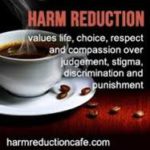 Then I started to work in harm reduction. I founded a SMART Recovery meeting, and went on to become an officer in the Harm Reduction, Abstinence and Moderation Support (HAMS) group. I met people who were at all stages of the struggle, from still using to fresh out of rehab to 18 years without a problem. I met people who were deeply in pain.
Then I started to work in harm reduction. I founded a SMART Recovery meeting, and went on to become an officer in the Harm Reduction, Abstinence and Moderation Support (HAMS) group. I met people who were at all stages of the struggle, from still using to fresh out of rehab to 18 years without a problem. I met people who were deeply in pain.
As I witnessed their pain, I began to reconnect with my own. It had been too difficult, at first, to remember the pain of passing out in the street or finding out the next day what I had said or done the night before. I didn’t want to remember the horror of  withdrawing from alcohol more times than I can count, sometimes throwing up blood for days on end and nailed to the bed in a panic attack. I didn’t even want to remember those early days of abstinence when my senses first came back and I could smell the flowers in summer and taste blueberries and coffee as though for the first time.
withdrawing from alcohol more times than I can count, sometimes throwing up blood for days on end and nailed to the bed in a panic attack. I didn’t even want to remember those early days of abstinence when my senses first came back and I could smell the flowers in summer and taste blueberries and coffee as though for the first time.
 After almost two years and working with countless people with substance use problems, I could feel my own pain again. And I realized something: to deny that there is a period of time when the pain is acute, and when healing has to be a priority, is to deny an essential reality of people’s lives. Of my own life. That’s when I started to use the word “recovery” again. But I do not believe that “recovery” is a permanent state. With proper self-care, support, and meaning in life, one can heal.
After almost two years and working with countless people with substance use problems, I could feel my own pain again. And I realized something: to deny that there is a period of time when the pain is acute, and when healing has to be a priority, is to deny an essential reality of people’s lives. Of my own life. That’s when I started to use the word “recovery” again. But I do not believe that “recovery” is a permanent state. With proper self-care, support, and meaning in life, one can heal.
My path to healing was a jagged one. When I left a traditional Twelve Step rehab, I was grateful to be out of addictive crisis, but I was even farther away from finding my true self than I had been. In  rehab, we were taught to identify as “addict” and “alcoholic,” and told that all our problems were due to our “disease.” We did little to address the issues that drove our addiction. Instead, we were taught that the answer to all problems was to attend Twelve Step meetings and work the Steps.
rehab, we were taught to identify as “addict” and “alcoholic,” and told that all our problems were due to our “disease.” We did little to address the issues that drove our addiction. Instead, we were taught that the answer to all problems was to attend Twelve Step meetings and work the Steps.
I got home and dutifully did my 90 meetings in 90 days as instructed, but it didn’t feel right. Gradually, I discovered writers who saw addiction differently. First Marc, then onto Carl Hart, Johann Hari, and eventually Stanton Peele and Kenneth Anderson. I saw a new way of looking at addiction, not as a symptom of a disease or indication that I was damaged for life, but as a behavior over which I could have control.  As I read more, I gradually began to discover my own voice, and started to write. Reclaiming my own identity, not as an “alcoholic” but as a writer, activist and scholar was my way out, not only of addiction but of the narrow, confined life that rehab and AA had defined for me as “recovery.” And I found that my own painful experiences gave me a perspective that could help others. Today, having recovered means living a life that I don’t have to medicate away.
As I read more, I gradually began to discover my own voice, and started to write. Reclaiming my own identity, not as an “alcoholic” but as a writer, activist and scholar was my way out, not only of addiction but of the narrow, confined life that rehab and AA had defined for me as “recovery.” And I found that my own painful experiences gave me a perspective that could help others. Today, having recovered means living a life that I don’t have to medicate away.
Two years after my 28 day stay in rehab, I find myself writing about substance use and mental health full time, and I’m doing my PhD on harm reduction. I hope that my work can help people who are going through that difficult period of healing. By using the word “recovery,” I honor their pain, and I honor my own. I also honor our triumph over the pain.
My substance problem is not who I am, but it is an essential part of my life experience. It has given me insight into things I never would have known about, and a kind of empathy I never had before I woke up on the concrete.
I am grateful for recovery. I am also grateful for the ability to move on.
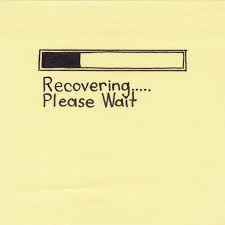

 In my book,
In my book,  psychedelic in the spirit of self-exploration; and then there’s been silly, teenage stuff for the ridiculousness of it – a whiff of amyl nitrite in the red light district of Paris, a balloon of nitrous while watching Twin Peaks. This freedom was a decision I made after two years of total abstinence, and it’s about joyous bursts, rather than the grinding self-medication of yesteryear.
psychedelic in the spirit of self-exploration; and then there’s been silly, teenage stuff for the ridiculousness of it – a whiff of amyl nitrite in the red light district of Paris, a balloon of nitrous while watching Twin Peaks. This freedom was a decision I made after two years of total abstinence, and it’s about joyous bursts, rather than the grinding self-medication of yesteryear. There will be people reading this with anger burning in their heart. To someone who is truly sober, my generous ‘you can if you want’ policy borders on betrayal. I know how that feels. I remember when a couple who had quit drinking told me that they’d each had a beer at a wedding, and reported with pleasure that they
There will be people reading this with anger burning in their heart. To someone who is truly sober, my generous ‘you can if you want’ policy borders on betrayal. I know how that feels. I remember when a couple who had quit drinking told me that they’d each had a beer at a wedding, and reported with pleasure that they 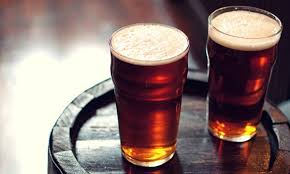 didn’t enjoy the beer and now they knew they didn’t need to wonder about it again. I felt an inexplicable fury. For me, alcohol was an absolute no-go zone; never worth risking. So that was the root of my rage: they’d made a decision that had worked out just fine for them, but it threatened my new blueprint for life.
didn’t enjoy the beer and now they knew they didn’t need to wonder about it again. I felt an inexplicable fury. For me, alcohol was an absolute no-go zone; never worth risking. So that was the root of my rage: they’d made a decision that had worked out just fine for them, but it threatened my new blueprint for life.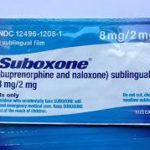 Bill Wilson, the co-founder of Alcoholics Anonymous, quit drinking in the thirties but experimented with LSD with Aldous Huxley in the 1950s. He even hoped LSD could prove to be beneficial to those in recovery. These days, debates rage on recovery forums as to whether opioid replacement therapy is
Bill Wilson, the co-founder of Alcoholics Anonymous, quit drinking in the thirties but experimented with LSD with Aldous Huxley in the 1950s. He even hoped LSD could prove to be beneficial to those in recovery. These days, debates rage on recovery forums as to whether opioid replacement therapy is 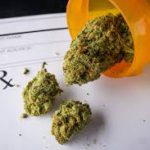 okay for NA members, or whether a ‘marijuana maintenance plan’ is acceptable when attending AA. In fact it might make sense to go to an outpatient drug and alcohol service and collaborate on a plan that includes, say, moderate pot use in the service of quitting methamphetamine (this option is already available in the UK and Australia).
okay for NA members, or whether a ‘marijuana maintenance plan’ is acceptable when attending AA. In fact it might make sense to go to an outpatient drug and alcohol service and collaborate on a plan that includes, say, moderate pot use in the service of quitting methamphetamine (this option is already available in the UK and Australia). Nowhere do we dictate what a person has to do to be a part of Hello Sunday Morning. Our wording – ‘reassessing your relationship with alcohol’ – turns it into a subjective experience. Even government campaigns in Australia are starting to use that kind of wording, and that’s a good cultural shift. It’s not about ‘Are you an alcoholic? Are you addicted or not?’ It’s about ‘What relationship with alcohol would you like?’ It could be none; it could be some.
Nowhere do we dictate what a person has to do to be a part of Hello Sunday Morning. Our wording – ‘reassessing your relationship with alcohol’ – turns it into a subjective experience. Even government campaigns in Australia are starting to use that kind of wording, and that’s a good cultural shift. It’s not about ‘Are you an alcoholic? Are you addicted or not?’ It’s about ‘What relationship with alcohol would you like?’ It could be none; it could be some.
 Why is it so hard? Why is there so much suffering, in the world, in ourselves? That question comes up all the time, especially among us addicts (recovered or not). We’re not the only ones. We just tried to find a way out through the back door. The proportion of people in the Western World (e.g., the US) who suffer from
Why is it so hard? Why is there so much suffering, in the world, in ourselves? That question comes up all the time, especially among us addicts (recovered or not). We’re not the only ones. We just tried to find a way out through the back door. The proportion of people in the Western World (e.g., the US) who suffer from  One simple answer is that we evolved from physical matter to become the unfathomably sensitive and intelligent creatures we are. And evolution doesn’t concern itself with suffering. In fact suffering (struggle, loss, and death) is a big part of what drives it.
One simple answer is that we evolved from physical matter to become the unfathomably sensitive and intelligent creatures we are. And evolution doesn’t concern itself with suffering. In fact suffering (struggle, loss, and death) is a big part of what drives it. know, someone who has struggled on and off with addiction throughout his life. He told me of his childhood traumas and hardships, and of the brutal treatment received by his parents in an internment camp during World War II who, as a result, were never able to give him what he needed as a child. He sees himself as someone who has to struggle and persevere just to get through each day, fending off anxiety, depression, hopelessness, and meaninglessness — you know, the usual quartet of background singers.
know, someone who has struggled on and off with addiction throughout his life. He told me of his childhood traumas and hardships, and of the brutal treatment received by his parents in an internment camp during World War II who, as a result, were never able to give him what he needed as a child. He sees himself as someone who has to struggle and persevere just to get through each day, fending off anxiety, depression, hopelessness, and meaninglessness — you know, the usual quartet of background singers. present, accepting the ebb and flow of forces that sometimes bring happiness but undoubtedly bring suffering and lead, inevitably, to loss and death. And certainly these forces are intermingled with the disconnection, competition, and often cruelty that we face from other humans who are, when you stop and think about it, just as caught up in their own struggles to survive from day to day and hold onto a bit of happiness.
present, accepting the ebb and flow of forces that sometimes bring happiness but undoubtedly bring suffering and lead, inevitably, to loss and death. And certainly these forces are intermingled with the disconnection, competition, and often cruelty that we face from other humans who are, when you stop and think about it, just as caught up in their own struggles to survive from day to day and hold onto a bit of happiness. But there are other ways to think about it. Fairness is a construction we learn at around age five, and it has absolutely nothing to do with the natural universe. It’s just a social norm, a code for resolving petty rivalries. It’s no more relevant to nature than tea ceremonies or Facebook.
But there are other ways to think about it. Fairness is a construction we learn at around age five, and it has absolutely nothing to do with the natural universe. It’s just a social norm, a code for resolving petty rivalries. It’s no more relevant to nature than tea ceremonies or Facebook. In fact, we are lucky as hell to be here at all. And suffering is just part of the process that brought us here and that continues to give us the chance to evolve and, hopefully, to grow more intelligent, compassionate, and beautiful.
In fact, we are lucky as hell to be here at all. And suffering is just part of the process that brought us here and that continues to give us the chance to evolve and, hopefully, to grow more intelligent, compassionate, and beautiful. guy with Huntington’s Disease, a guy who is presently in the process of losing everything, his body and his mind. And he’s talking about connecting and accepting and loving. He’s nowhere close to despair. I’m only partway through and I can’t yet recommend it confidently, but take a look if you like. There are certainly gems of wisdom in the book, and even the fact that this guy can think this way and write this way is astonishing and uplifting.
guy with Huntington’s Disease, a guy who is presently in the process of losing everything, his body and his mind. And he’s talking about connecting and accepting and loving. He’s nowhere close to despair. I’m only partway through and I can’t yet recommend it confidently, but take a look if you like. There are certainly gems of wisdom in the book, and even the fact that this guy can think this way and write this way is astonishing and uplifting.

 and use. You should just give up and settle for less, because this isn’t gonna get any better. Besides, nobody will know…or care.
and use. You should just give up and settle for less, because this isn’t gonna get any better. Besides, nobody will know…or care. One of the Trumpocalypse’s unintended contributions to the rational world was the reminder that not everything we hear on the news is real. Neither is everything we hear in our heads — especially the automatic negative thoughts blaring from our own fake news channel.
One of the Trumpocalypse’s unintended contributions to the rational world was the reminder that not everything we hear on the news is real. Neither is everything we hear in our heads — especially the automatic negative thoughts blaring from our own fake news channel. Fake news triggers urges, and vice versa. The satellite feed for the lead story originated long ago and far away — for some of us the stories started in early childhood. The stories can be as incessant as muzak playing over and over in your head. We have to change the channel to stay ahead of it…to stay in front of the fuck-its. Because when do the fuck-its happen? When terrorists demand action, now — no time to stop and think — or else.
Fake news triggers urges, and vice versa. The satellite feed for the lead story originated long ago and far away — for some of us the stories started in early childhood. The stories can be as incessant as muzak playing over and over in your head. We have to change the channel to stay ahead of it…to stay in front of the fuck-its. Because when do the fuck-its happen? When terrorists demand action, now — no time to stop and think — or else. Fake news is now not only a meme but an apt tag for the harmful diatribes that go off in our heads and often drive our behavior. But if we can recognize them, we can label them, and if we can label them, we can stop listening. If we can slow down enough to classify the news as real or fake, then, if it’s fake, we can turn down the volume — all the way down.
Fake news is now not only a meme but an apt tag for the harmful diatribes that go off in our heads and often drive our behavior. But if we can recognize them, we can label them, and if we can label them, we can stop listening. If we can slow down enough to classify the news as real or fake, then, if it’s fake, we can turn down the volume — all the way down.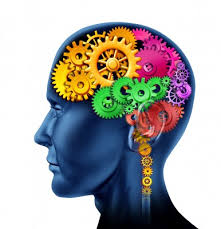
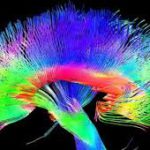 I think the main reason is that our thinking and feeling, our personalities, and consciousness itself are so immediate, so personal, that we can’t entertain the idea that they emerge from electrochemical pulses among a bunch of cells. Our experience is so intricate, nuanced, and private — it’s difficult to imagine that it comes from a remarkable bodily organ. This paradox has been a real problem for philosophers ever since the time of the Greeks. It was made famous by Descartes, who said there must be some part of us that does not come from our bodies: this was termed “mind-body dualism.”
I think the main reason is that our thinking and feeling, our personalities, and consciousness itself are so immediate, so personal, that we can’t entertain the idea that they emerge from electrochemical pulses among a bunch of cells. Our experience is so intricate, nuanced, and private — it’s difficult to imagine that it comes from a remarkable bodily organ. This paradox has been a real problem for philosophers ever since the time of the Greeks. It was made famous by Descartes, who said there must be some part of us that does not come from our bodies: this was termed “mind-body dualism.” dark things we’ve thought and done. The dishonesty that often comes with addiction (the lying, stealing, etc) feels like an incontrovertible personal failure, unforgiveable (at some level) because…well because shouldn’t I be a better person?
dark things we’ve thought and done. The dishonesty that often comes with addiction (the lying, stealing, etc) feels like an incontrovertible personal failure, unforgiveable (at some level) because…well because shouldn’t I be a better person? according to the codes built into it over millions of years of evolution, most critically: attempt to minimize suffering and maximize relief. Stave off deprivation. And it puts those requirements above other goals, like obeying social conventions. This brain of yours has been adjusting to whatever has happened to you every single day since (and before) your birth. And some of what’s happened to you has no doubt been frightening, uncontrollable, and perhaps deeply traumatic.
according to the codes built into it over millions of years of evolution, most critically: attempt to minimize suffering and maximize relief. Stave off deprivation. And it puts those requirements above other goals, like obeying social conventions. This brain of yours has been adjusting to whatever has happened to you every single day since (and before) your birth. And some of what’s happened to you has no doubt been frightening, uncontrollable, and perhaps deeply traumatic.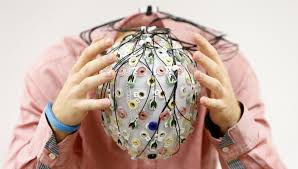 rather not do aren’t simple choices between right and wrong. They arise from a sequence of developmental adaptations in an organ that does its best to keep us going in a hugely challenging world.
rather not do aren’t simple choices between right and wrong. They arise from a sequence of developmental adaptations in an organ that does its best to keep us going in a hugely challenging world.